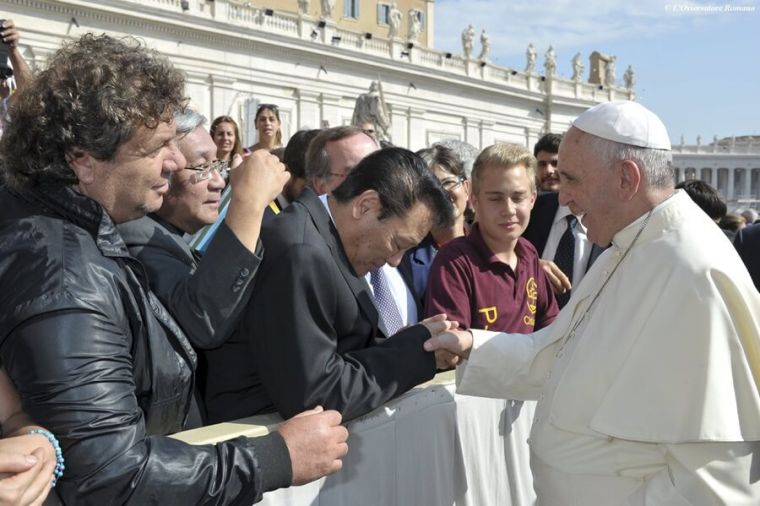Pope Francis facing threats: 'Apocalyptic strategy' to prevent Catholic Church reforms sparks Vatican fears

An alleged "apocalyptic strategy" by Catholic conservatives meant to destabilise the Church and prevent Pope Francis from undertaking radical reforms has reportedly whipped up a storm of intrigue in the Vatican.
Conspiracy theories have been mushrooming in the Italian media following reports that the pope had a brain tumour, which the Vatican immediately and vehemently denied, according to Reuters.
Argentine Bishop Victor Manuel Fernandez was quoted in the La Repubblica that he fears a well-planned "apocalyptic strategy" against Pope Francis by conservatives who wanted to weaken his authority as the world's bishops are about to end their synod on family issues and possibly declare the results of their meeting on Sunday.
Italian newspapers are fanning the flames of intrigue with headlines such as "Who wants the pope dead" in Il Giornale newspaper. Not to be outdone, La Repubblica and La Stampa also underscored an alleged "shadow of a plot" on their front pages on Thursday.
Regarding the rumours of Pope Francis having brain tumour, well-known political columnist Massimo Franco wrote in Corriere della Sera daily that the story was probably "hatched in the most murky Vatican underground and was aimed at de-legitimising the pontiff."
La Stampa called the allegation as a "calumny to block change."
The story was first reported in Quotidiano Nazionale which claimed that a Japanese doctor had secretly visited the Vatican in January to examine the pope and concluded that he had a benign tumour that could be treated without surgery.
The report alarmed the Vatican to such an extent that it issued three detailed denials of the allegation.
To douse speculations, the doctor mentioned in the story, Takanori Fukushima, released a statement through his office in North Carolina. In the statement, Fukushima said, "I have never medically examined the pope. These stories are completely false."
The statement said Fukushima only shook the pope's hand while he was with thousands of other people at a general audience in the Vatican (see photo above), pointing out that the doctor never talked much less examined the pope.
However, Quotidiano Nazionale insisted on the veracity of its story.
The Vatican's own newspaper, L'Osservatore Romano, joined in the growing controversy, saying the timing of the "false news" was suspicious. "The moment chosen unmasks an attempt to raise a cloud of dust in order to manipulate," it said.
German Cardinal Walter Kasper, a progressive prelate close to Pope Francis, admitted that the media reports are causing a feeling of unease in the Vatican. "Some, both inside and outside the Church, are nervous about the outcome of the synod," Kasper said.
"It's clear that some people don't like this pope ... but the pope is in good shape and the attempt will be in vain," he told Corriere della Sera.
The Catholic conservatives are resisting proposed doctrinal changes on liberalising the Church's stand on homosexuals and divorced Catholics by showing them more mercy and less condemnation, Reuters said.











